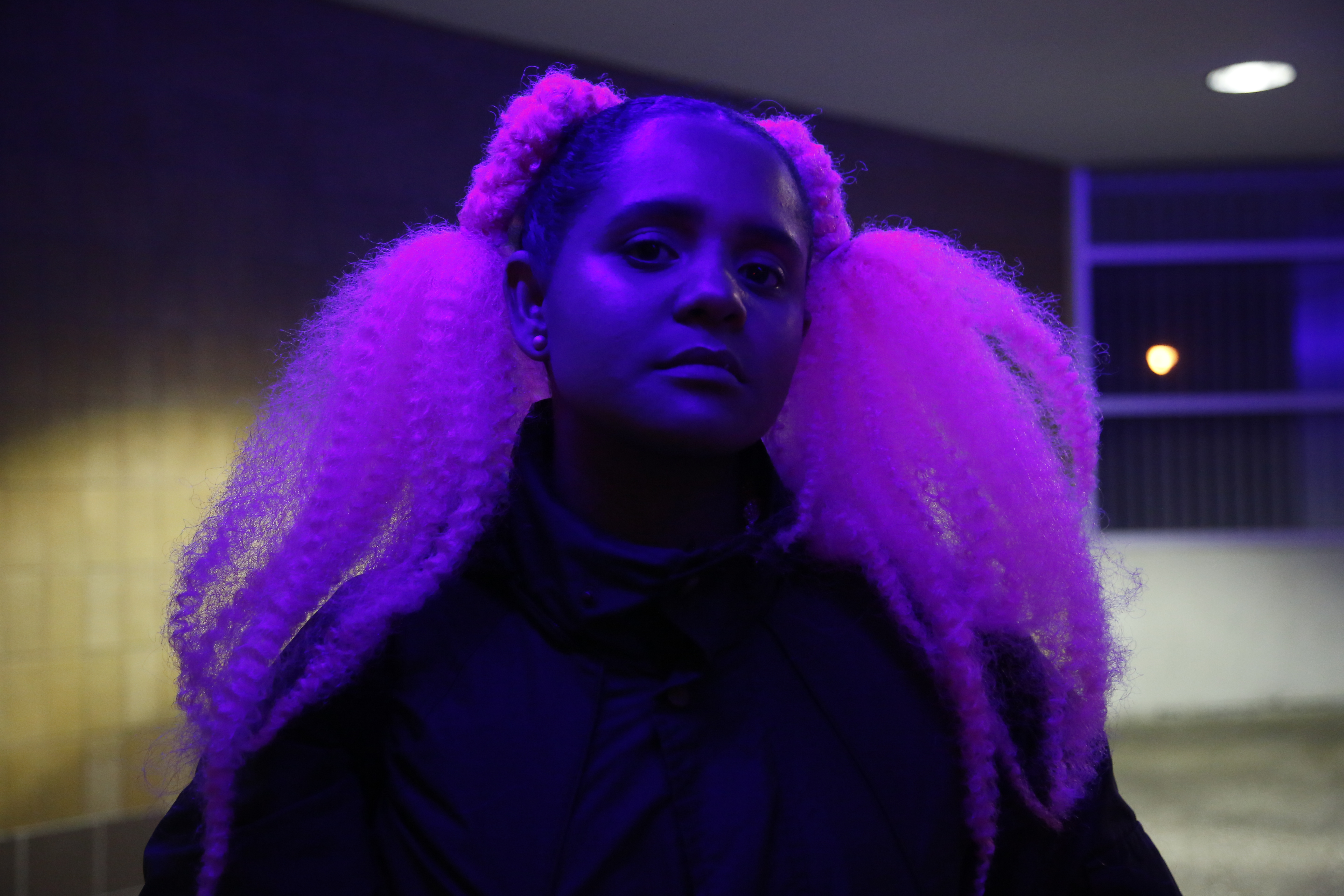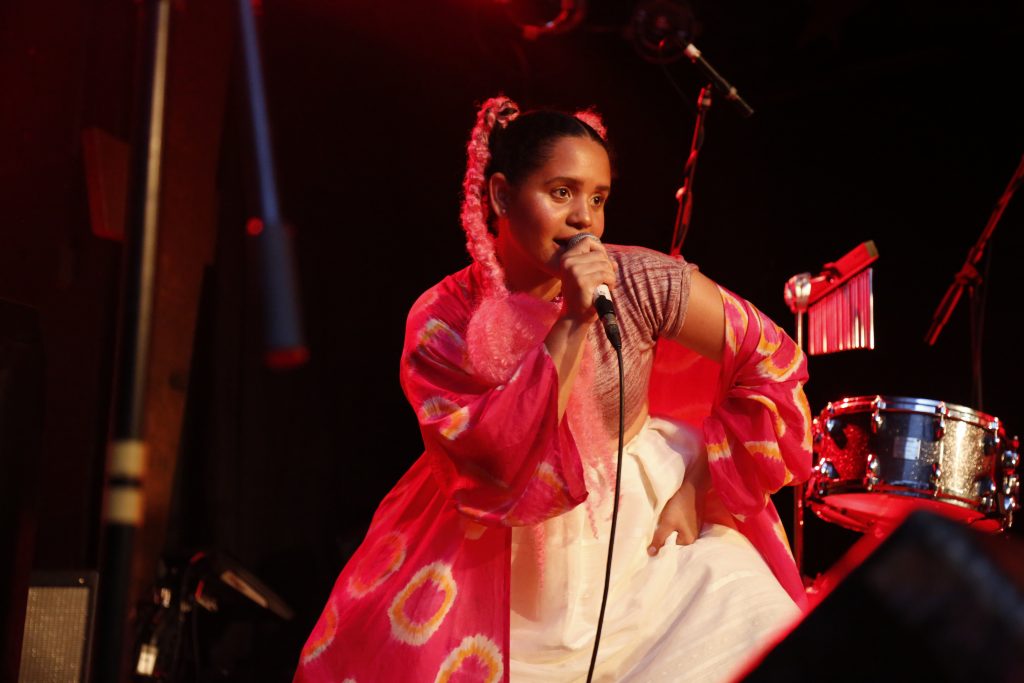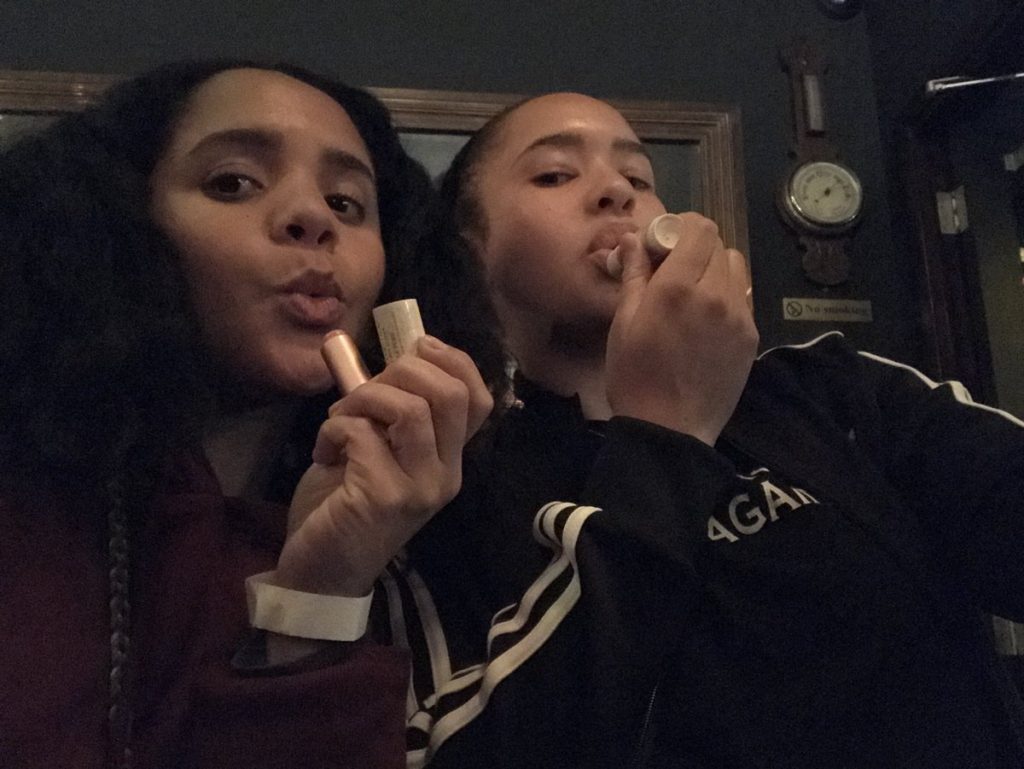
Lido Pimienta on that Halifax show, diasporic music, and the importance of a good lip moisturiser
ifama
14 Nov 2017
Lido Pimienta is the real deal. The interdisciplinary musician has been creating experimental music full of intense passion for over a decade. From fronting a metal band at thirteen-years-old to creating boundary pushing work – sung entirely in Spanish amongst Canada’s sea of French and English songwriting. Lido successfully stitches together feelings of frustration, intimacy and hope you never knew you could feel all at once.
The intersectional activist recently won Canada’s prestigious Polaris prize and has also become the target of alt-right vermin after her “black-and brown-girls-to-the-front” show requests were disrupted by a white photographer who was incapable of recognising what systemic racism is whilst standing on soil stolen from its indigenous people.
I sat down with the badass songstress to talk music from the diaspora, white supremacy and the importance of a good lip moisturiser.
Born in Barranquilla, Colombia to parents of black and indigenous Wayuu heritage, Lido grew up making music in school programs and singing throaty guttural within the city’s metal scene. But following kidnapping threats, her family picked up and moved to Canada. “When I lived in Colombia, up until I was 19, all I listened to was the trip-hop scene in Bristol, Portishead, Massive Attack and Blur and then when I came to Canada and I saw how first world countries function and as I began to understand power structures, white supremacy and unsettler [sic] colonialism, I was like: ‘Oh wait what? Why are you crying so much?’”
Now, she prefers to listen to “all the uplifting music made by the diasporas”, playing Afro-Colombian tunes and exploring “diasporic experimental sounds” from Southern Africa, Southeast Asia and the Middle East in an aim to “listen to things that are familiar to me by blood”.
Making a conscious decision to seek out the music of your peoples comes with the experience of existing both within and between cultures. “I live in this hyphen, pseudo-reality, twilight zone when I go to Colombia and I fucking feel like I’m a Canadian snob and then I’m in Canada and I’m just over it, like people are so stiff and I just want to go to the bank in my bathing suit, you know?”
Witnessing different cultural behaviours in yourself can be an uncomfortable process, but Lido notes, that’s “just my reality right now, because I’m conditioned to be like: ‘That’s too loud!’, but then I have a big mouth and if I’m doing it then I don’t want anyone to bother me, because the Colombian in me is like: ‘Aaaahh!’”
“Lido states that she told the woman to leave the show but media outlets have spun the story into a cry of reverse racism”
She holds a strong sense of identity, observing how her existence as an immigrant, a mother, a black Colombian girl “[represents] so many narratives that it’s impossible to stick to one”. She rejects humility, choosing to bask in the glory of her Afro-Latinx heritage: “Do you see this is how my hair naturally grows out of my head and you expect me to be humble? Did you see my ass? Did you hear my voice?”
This sense of certainty comes through on stage. Whilst Lido notes that her “performance and the songs can take a different meaning depending on who it’s performed for”, her command of the space is ever-present. This was recently challenged during a performance at Halifax Pop Explosion festival in Nova Scotia. During the set Lido asked, as she usually does: “I need all men to step back, and then women come to the front, non able-bodied people come to the front, trans women please come to the front and then I need all the white girls to stand behind these people”. This was a moment she describes as an “opportunity to make oppressed people visible” within a country where 2.9% of the population is black and just 4% have indigenous heritage.
During this request, a white photographer “refused and then started a fight”. Lido states that she told the woman to leave the show but media outlets have spun the story into a cry of reverse racism, leading “all of white supremacy to message [her] things like: ‘How dare you be a racist, you monkey’”. The festival have apologised for the incident.
She asserts that it’s a practice she began because she “[understands] what it’s like when you go to a space and there’s no one else that looks like you”. Within music venues this can be a daunting experience, especially when you’re a black and/or brown woman watching another black and/or brown woman perform the stories of your existence. She notes that in future shows she may offer some context to her audience, telling personal anecdotes from her school days when “white kids would come and cut my hair so they could put it under a microscope and study it”.
“I have hope that young people will make things better so that’s why I’m happy to see white people who get it at my shows”
It’s this universal lack of empathy and disbelief of history and its impact today that enables whiteness to feel slight discomfort and blow it into an international news story, but Lido is optimistic for the future. “I have hope that young people will make things better so that’s why I’m happy to see white people who get it at my shows” and she stands firm that it’s a request she doesn’t want to stop doing.
I ask her if the misinterpretation of her words as unnecessarily political — despite it just being our lives as brown bodies — has an effect on her every day. She tells me, “Statistically I’m not supposed to be where I am right now. I’m supposed to have four kids and married to some motherfucker who beats me up and I’m pressured to stay married to him. But that’s not what the fuck I do. I got married when I was young because I wanted to. I had my baby because I wanted to. I broke up with the motherfucker because I wanted to and now I’m a successful bitch who still has so much more to do”.
She also weighs up the correctable issues in her life, shunning alcohol and drugs and sharing the wisdom with her friends, “I’ve gotten three friends of mine to stop smoking by telling them: ‘Why do you smoke cigarettes when brown people have enough problems? Is depression and generational trauma not enough for you, boo? You’ve got to give yourself cancer too?’’.
Lido Pimienta is one of the most genuinely assured people I’ve ever met, but it took the experience of ditching “useless people” to become “wiser and more comfortable”. She notes, “The moment that I looked at myself and I was like: ‘You’re not only smart, you’re generous, you’re talented and you’re beautiful inside and out–”. She stops mid sentence as I unconsciously pull my lip balm from my bag. “Wait, I want you to see how similar you and me are” she tells me. “You know how important this is, it’s next to my passport”. “With this”, she claps her hands. “You’ve got it, you’re all set”.
I guess I am.
You can listen to Lido’s album La Papessa here






